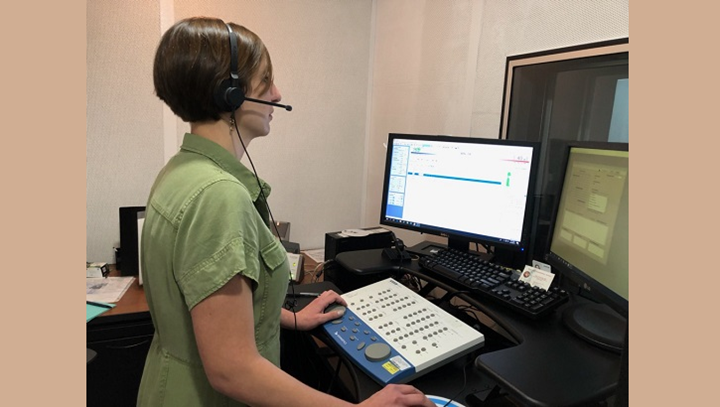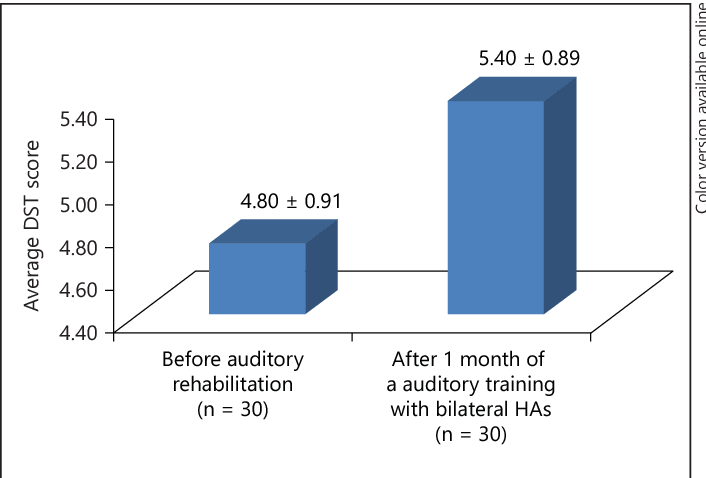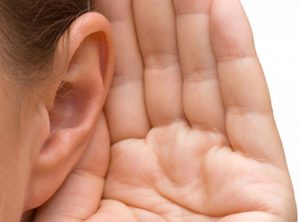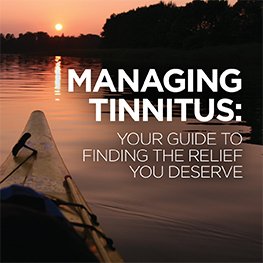One of the most important things I have ever done concerning my hearing loss is retraining my own brain to hear better. There are specific strategies that an individual can utilize to help themselves improve their ability to understand speech. This is formally called “Auditory Training” or “Auditory Rehabilitation”. Auditory training essentially is a program for reteaching the brain to recognize sounds and interpret them as speech. Auditory training can also help the brain make the most of what hearing you do have left.
Auditory training is especially important for those who utilize cochlear implants. Learning to interpret the cochlear implants digital signals can sometimes be almost like learning a new language. It is not the digital signal itself that is the issue, but how accurately each individual’s brain processes the received signal. As with anything new, patience and practice are critical to a positive outcome.
Auditory Rehabilitation Had Military Beginnings

Auditory rehabilitation was first formulated by the U.S. Military after World War 2. The number one disability for military service then, as it is now, is hearing loss. Back in those days, hearing aids were not nearly as effective as they are today. Auditory rehabilitation was developed as a way to augment the capabilities of the hearing aid technology of the day.
Hearing aid technology has improved since WW2 and auditory traininng isn’t as commonly used by hearing care professionals as it once was, but it can still be extremely helpful for many.
Cochlear implant patients are more commonly encouraged to participate in auditory training today. Auditory training is a way to train our brain to be able to distinguish between closely related sounds.
Auditory Training For Older Adults
Studies have shown that aging affects how the brain processes sound. As we age, sounds can become distorted and hard for the brain to distinguish. Many times this effect can become more exacerbated when background noise is present. Researcher Samira Anderson, Ph.D and her colleagues at the University of Maryland studied brains between 18-27 years of age and compared them to brains between the ages of 61-73. Their findings were that the brains of the older adults become worse at processing speech sounds as they aged, even if they had normal hearing. Apparently the cortex (the part of the brain that processes speech), slows down over time. Similar to older computers not being as fast as newer ones.
Hearing aids are an important part of current auditory training.

Rediscovering Auditory Rehabilitation
As hearing aid technology has improved over the years, many hearing health professionals have stopped placing any emphasis on auditory rehabilitation. Many neurophysiologist now believe that auditory training should be reemphasized for those older adults patients with hearing loss, even if they wear modern hearing aids. Unfortunately, many times auditory rehabilitation is not covered by insurance. Hearing health professionals can and probably should recommend to older patients even an at-home auditory rehab program. Ultimately the goal of hearing aid wear and auditory rehabilitation is the same…. Better hearing.
Available Auditory Rehabilitation Programs
LACE
Listening and Communication Enhancement: Learn communication and listening skills to help compensate for hearing loss.
For more information visit: lacelistening.com
Cochlear
Cochlear offers a “Communication Corner” to help patients of all ages in both English and Spanish improve listening, communication skills, and confidence.
For more information, visit: Cochlear.com
Advanced Bionics
Advanced Bionics has a “Listening Room” which supports speech development, language and listening skills for all ages in both English and Spanish.
For more information visit: thelisteningroom.com
Angel Sound
This is a PC based interactive auditory rehabilitation and hearing assessment program.
For more information visit: angelsound.tigerspeech.com
clEAR
Customized learning; Exercises for Aural Rehabilitation: Emerging Research Grants recipient Nancy Tye-Murray, Ph.D., created clEAR in 1987. clEAR offers exercises for those concerned about hearing loss and cognitive decline.
For more information visit: clearworks4ears.com.
MED-EL
MED-EL is a cochlear implant manufacturer and offers auditory rehabilitation tools and tips for home, work, and school.
For more information visit: Heathline.com




